We hear this phrase a lot. It’s on t-shirts, coffee cups, and even has its own hashtag. But what does it actually mean to be “tough as a mother?” The idea of being a “tough mom” can mean so many things, from fitness to parenting style to how well you deal with the sh*t life throws your way. These are all valid uses for the phrase. After all, being a mom in itself is tough. But so is becoming one, and we need to talk about that too.

This site contains affiliate links, meaning that we earn a small commission for purchases made through our site. We only recommend products we personally use, love, or have thoroughly vetted.
Tough As a Mother Shirt
In the early Fall of 2018, I was strolling past a shop.
Literally.
Jack was in his stroller, so I was actually strolling, and strolling Jack.
Husband walked beside me, and a t-shirt on a mannequin caught my eye. It was a white shirt with tiny, pinkish-red letters. (Does anyone else have trouble distinguishing between those two colors?)
Those tiny letters said:
“Tough as a mother.”
“I have to have that!” I practically yelled to Husband. I passed the stroller off to him and was barely through the door of the shop when I heard him ask, “Why?”
I ignored him, continued on my quest, and emerged 2 minutes later the proud owner of a “Tough as a Mother” shirt.
An Extra Large, I might add, that is slightly too tight on my size 8 body. Dear fashion industry, seriously rethink yourself.
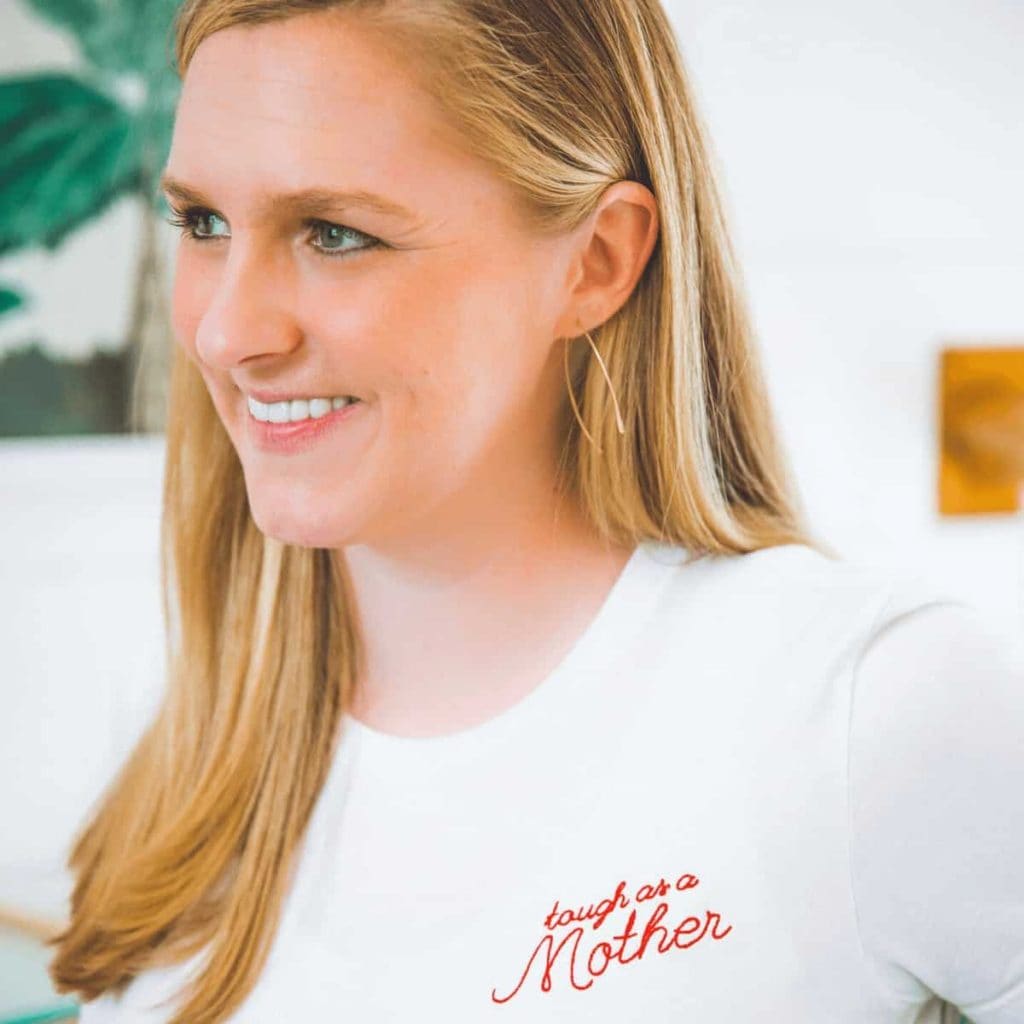
But I digress.
Why did I want this tough mom shirt?
That question kept ringing in my head.
For months and months, I pondered it.
Husband didn’t mean anything by it. He couldn’t have cared less whether or not I bought a t-shirt. His question was simple, instinctual, a desire to understand the allure of this shirt.
But it continued to bother me, so much so that It was constantly on my mind.
Why, indeed?
Why did I want this shirt, and why did I find this saying empowering? Even significant?
Was it a sign of my eventual success after recurrent miscarriage? A crowning glory showing that I’d finally achieved the title of “mother” in everyone else’s minds?
After all, what is a mother, really? I thought I’d been one for years, but no one else seemed to think so until Jack was born. Did this shirt represent that in some way?
I couldn’t shake the fact that, although I found this shirt empowering, I might’ve been upset by it a mere year earlier.
Would I have loved how it identified my toughness, or felt excluded by the fact that I wasn’t the type of “mother” it meant before I had a living child?
What Does it Even Mean to be “Tough As A Mother?”
The honest truth is that I had no idea. And the fact that I felt so naturally drawn to this saying bothered me.
But the more I thought about it, the more I considered why I might have loved this saying. So I came up with my own meaning for “tough as a mother,” my own personal sort of tough mom quotes that I want to live by.
To be tough as a mother recognizes an inherent female strength, a strength that is far too often overlooked.
In looking through all the different definitions for the word “tough” that are outlined in the Oxford English dictionary, 2 stand out as my favorites:
“Not easily broken”
“Not fragile, brittle, or tender.”
I love both of these for so many reasons.
Maybe I Love This Idea Because of My Experience and Background
I think one reason I’m drawn to these definitions is because my background is in the study of Victorian motherhood.
If you aren’t familiar with the Victorian childhood fever epidemic, I highly encourage you to learn more. It’s fascinating and terrifying, and there are so many lessons we can take from it as we help present-day women learn to practice patient empowerment.
But what you need to know for my point here is that Victorian mothers were considered extremely fragile, especially around childbirth.
Household difficulties were kept secret from expecting or new moms for fear that hearing even the slightest bad news might upset them and cause pregnancy complications.
They were considered weak and feeble, and once they recovered after the postpartum period, mothers were expected to be angelic–kind, gracious, selfless, nurturing, tender.
Ultimately, the entire ideology of motherhood was one that I find to be extremely stifling. It worked under the assumption that women and mothers were weak. Weak is the opposite of tough.
So a shirt that says a mother is not these things–fragile, brittle, tender–spoke to my Victorianist heart.
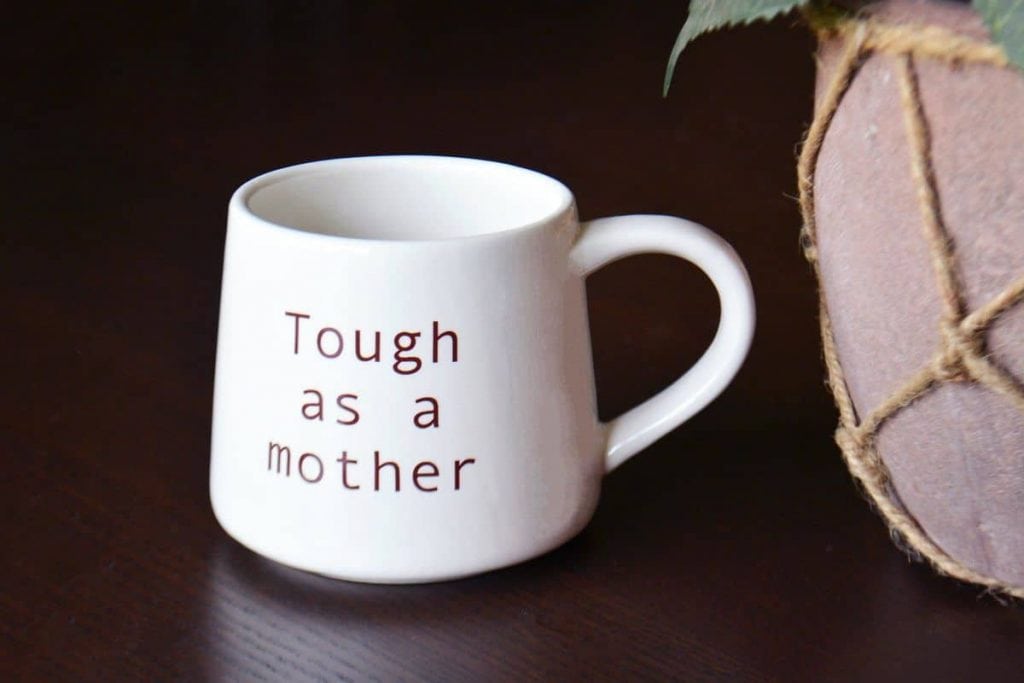
Recurrent Pregnancy Loss Did Not Make Me Feel “Tough” or Like a Mother
The other reason I was so drawn to this phrase is because of my own personal struggles with infertility and miscarriage.
As I was going through the experience, people kept telling me how “strong” I was.
I didn’t understand.
Strong, or in the case of this t-shirt, “tough,” was the opposite of how I felt.
I felt like my body was failing at something the female body is supposed to naturally do.
Even worse, it seemed that many people expected me to “get over” my losses far sooner than I was able to. This did not make me feel strong.
After my first loss, my boss insisted that I take a full week off of work. (Yes, I had an amazing boss.) I thought I wouldn’t need that much time, but she insisted, and I’ll be forever grateful.
Because I didn’t feel at all tough as I lay on my couch, day after day, going through box after box of tissues, binge watching the entire series of Gilmore Girls, and somehow downing an entire tub cookie dough EVERY DAY.
(You can better prepare for this by knowing what to expect when you miscarry.)
I didn’t feel tough when I went back to work a week later and could barely look at my students or colleagues without bursting into tears.
(You can better prepare for this by learning about what to do after a miscarriage.)
I. Just. Did. Not. Feel. Tough.
The Toughest People Often Feel Weak
Here’s the thing about people who are told they’re emotionally “strong” or “tough.”
They usually hear this when they’re going through something horrible, and there is nothing about the situation that was their choice.
No one wants to have to be strong. It’s as if somehow persisting through trauma because that’s what life requires makes you “tough.”
Postpartum: Being a Mom Is Tough
God knows I didn’t feel tough after I had Jack.
After giving birth to Jack, I had a hell of a time dealing with postpartum depression and anxiety. You don’t feel tough when you can’t make it through a day without a multitude of panic attacks and relentless sobbing.
This isn’t something most people will admit out loud, but I think we should: I constantly wondered if I’d made the right decision having a baby.
I’d spent YEARS struggling through pregnancy loss, being poked and prodded, going through all the recurrent miscarriage testing. Ultimately, I had surgery to get to this precious little boy.
But once he was home with me, I felt like the absolute opposite of a tough mom. I felt obliterated. I didn’t recognize my life or myself.
I didn’t believe I could take care of him, and given my mental state, I wasn’t entirely wrong.
This is postpartum depression.
The anxiety on top of it is a whole different ball game.
But I’ll tell you one thing, and the Southern is going to come out in me here, so bear with me:
Ain’t no way I anyone would’ve looked at me and seen tough.
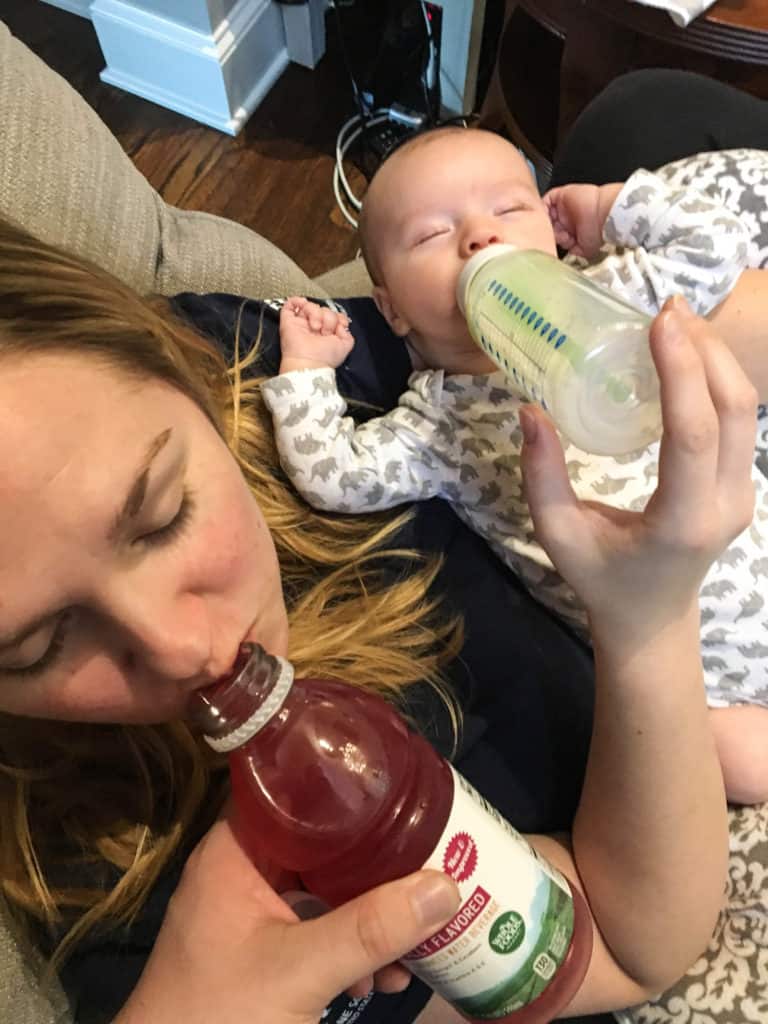
And Then There Was the Mom Guilt
And I mean this for every step of the process I’ve discussed, plus the later ones I haven’t yet.
I felt guilt over so many things:
- Trying to have my own biological child when so many little ones out there deserve to be adopted into loving homes
- Not being excited about my pregnancy with Jack when everyone else expected me to be over-the-moon. (I never fully believed Jack would be born living, so until he was in my arms, the excitement was muted.)
- Questioning my own parenting ability once he was born instead of cherishing every moment of new parenthood
I went from all this guilt and anxiety to Jack suddenly being in my arms.
I had gone from checking into the hospital, saying things to Husband about what we would do IF we got to take Jack home with us, to having a baby to care for.
Warning for even the toughest moms: The paradigm shift is always huge when you have a first child, but coming from the perspective of recurrent miscarriage, it can be
Therapy Can Be Lifesaving
I’ll never forget the best words anyone has ever said to me.
I was 4 days postpartum, sobbing on the phone with my therapist. “I’m supposed to feel so happy,” I said. “But instead I feel stifled, terrified, miserable. I can barely breathe.”
Tough mom tip: the words “supposed to” can kill you. Let’s throw them out of our vocabulary now.
Here’s how my therapist responded.
“You checked into the hospital still not allowing yourself to believe you’d bring a baby home. Now you’re recovering from childbirth while adjusting to an infant relying on you for everything. Honestly, I’d be worried if you WEREN’T seriously struggling. No mind knows how to cope with that kind of shift.”
Thank God for my therapist.
His words meant the world, and they helped me move past another part of the guilt–the guilt that I knew so many women desperate for the baby I’d been lucky enough to finally have, while all I could do was pump milk, hold him, and sob in a heap.
Even Tough Moms Feel Guilt
But you know what? There will always be guilt, even though I have ways of working through it.
The guilt of working and worrying I’m not spending enough time with Jack.
The guilt of working when he’s around and feeling like I’m ignoring him.
The guilt of not mothering the way other people think I should mother.
All. the. freaking. guilt.
But you know what?
Being a mom is tough, and trudging through the mom guilt every day requires an inherent toughness.
I don’t know any mother who doesn’t push her way through constant guilt. I don’t know a single woman who isn’t constantly pushing through guilt.
As one guest author said of working mom guilt, “We’re females in the 21st century. We’ve got to feel guilty about something!” Indeed, Shelby.
That must mean that every single woman out there must, in some way, be tough as a mother.
So, What Does It Actually Mean to Be Tough as a Mother?
Oh friend, it means SO. MANY. THINGS.

Here’s what I believe it means:
Moving forward
Mothering your own mother, or sibling, or friend.
Leaving a marriage or relationship knowing it might cost you the future child you dream of.
Being a single parent, doing the work and making all the tough parenting decisions on your own.
Taking in someone else’s child and loving them as your own–through adoption, fostering, inheritance, marriage, of whatever structure your joint family takes.
Navigating the complicated experience of being a stepmother.
Navigating the complicated
Loving those around you, fiercely and loyally.
Making the socially difficult decision not to want children at all, and instead, bettering the world in other ways.
Advocating for a better future for all children of the world.
Fighting to have children no matter how hard (infertility moms, miscarriage moms, adoptions moms, HG moms, and more.)
Persisting through infertility, pregnancy loss, adoption, fostering, surrogacy.
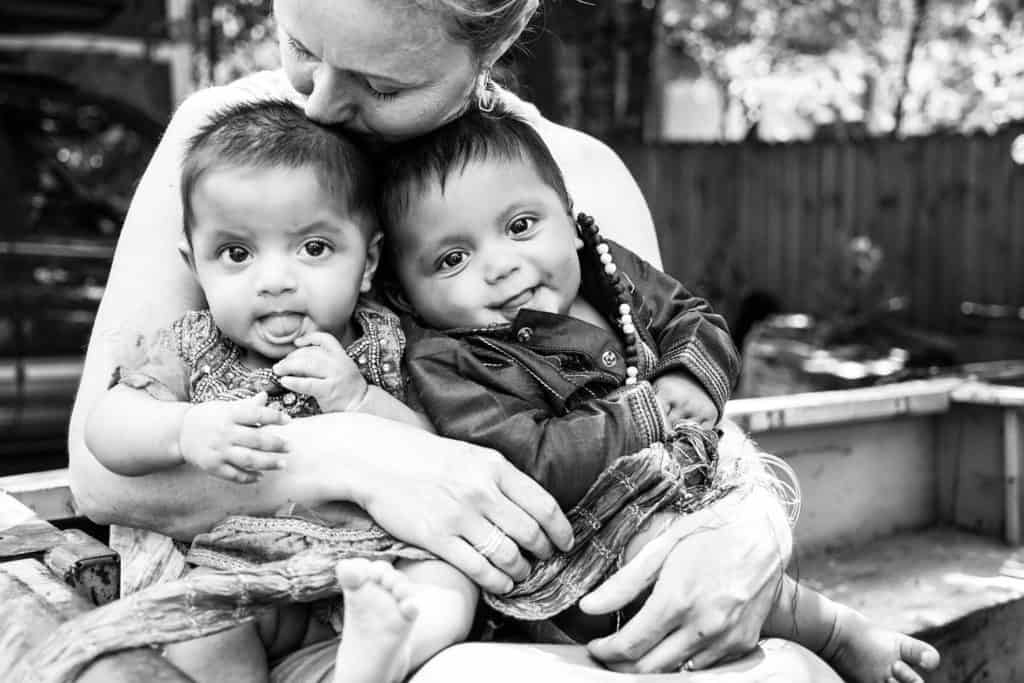
Dealing with the trials and tribulations of having a child in the NICU, or with other health problems.
Learning more than you ever wanted to know about special needs or children’s food allergies because of your children’s needs.
Parenting after the loss of a partner.
Being a mother far from your support network, or without a support network at all.
And Being “Tough as a Mother” Means so Much More
I cannot possibly encompass all it means.
I know I’ve left people out, and if I knew who they were, I would include them.
Because all of our situations are different, but no matter how good someone has it in some ways, they’re required to be “tough” in others.
I think the conclusion I’ve come to is that it doesn’t matter who you are; in some ways, we’re all “tough as a mother.”
When was a time you had to be “tough,” even though you TOTALLY didn’t feel it?
Post About Infertility and Miscarriage
- Laura’s story of premature ovarian failure
- Beth’s ectopic pregnancy story
- Fertility and infertility definition, + what it’s like to live with infertility
- What to say to someone struggling with infertility
- Miscarriage tattoo ideas
Posts About Trying to Conceive and Pregnancy
- Best ways to track ovulation
- TTC Tips for Trying to Conceive
- What is the two week wait? And how to survive it.
- New baby must haves with PRINTABLE baby registry checklist
- Writing a birth plan: the ultimate birthing checklist
Parenting Posts for Mom
Other Lifestyle Posts
- What is a mother?
- Curated life in the age of social media
- The best diaper bag alternatives

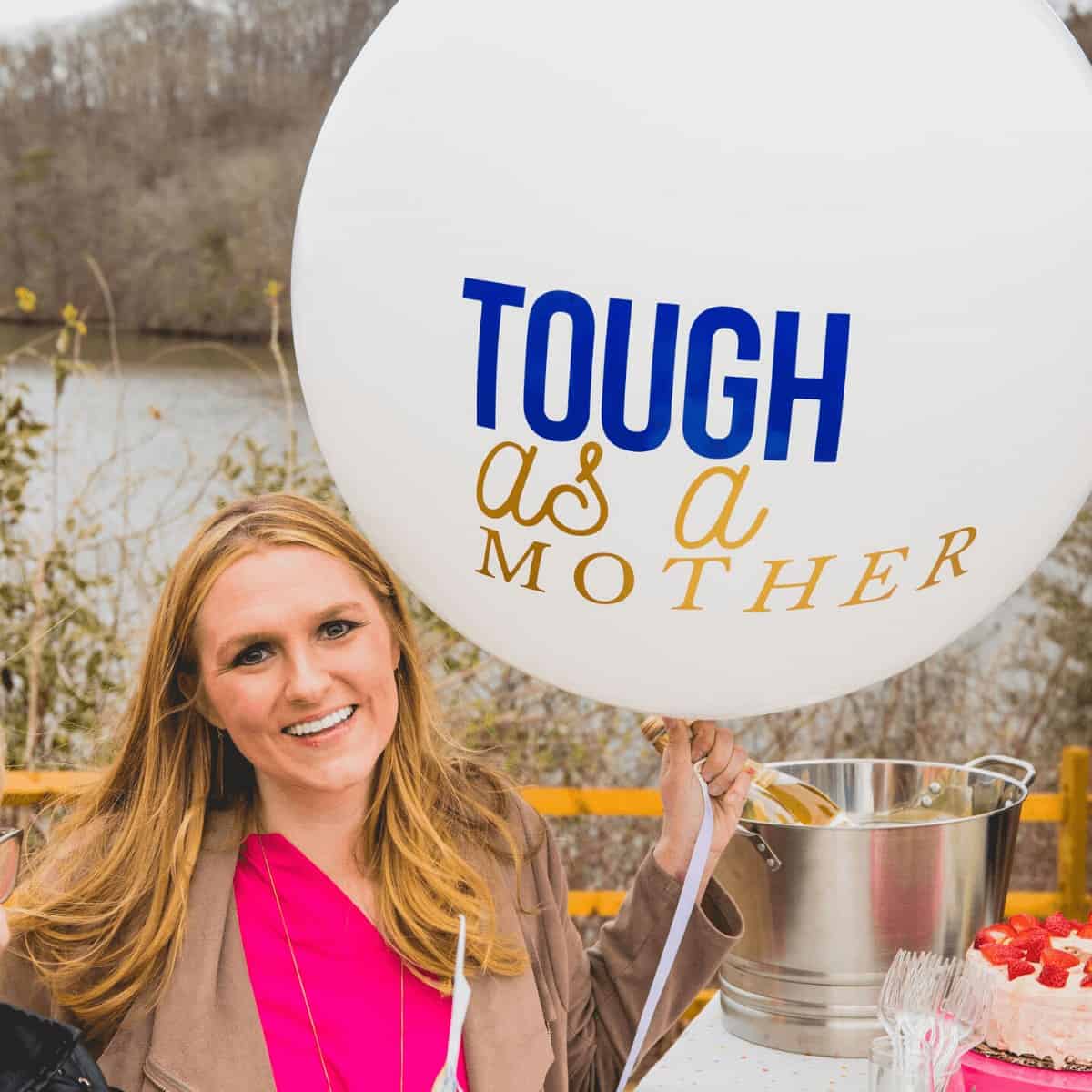









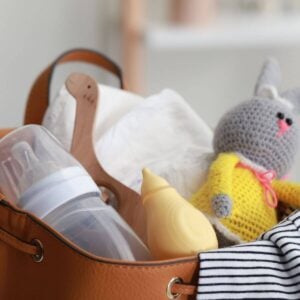
Katy,
I loved your post. I appreciate your honesty. I had a very similar experience as you when my son was born after experiencing a miscarriage. I often try to put the feeling into words and the only thing I can come up with is feeling like “I was hit by a bus and told I was going to be out in jail for the rest of my life”. I was talking to some mommy friends about this very thing the other day. It is important that it be pointed out that women rarely get to process what happens to them during the birth experience. It is no wonder many (including myself) develop PPD/PPA. I would love to keep this conversation going because I believe it is a serious issue. I think that is one of the ways we are “strong as a mother”. We go through a traumatic and life-changing experience such as birth and immediately go into caring for another life and the weight of that feels like it falls squarely on our shoulders. Yet we do it anyway. It may be messy but it is beautiful. Proud to be on this journey with you, mama. We’ve got this. From one mama to another, Juana Maria
Thank you so much for this comment, Juana Maria! I agree that we need to keep this conversation going! I plan to talk about it more in the future, but if you have specific ideas or anything you specifically want to talk about, shoot me an email or DM me on Instagram. I’d love to chat about ways to best serve women who need more of these conversations!